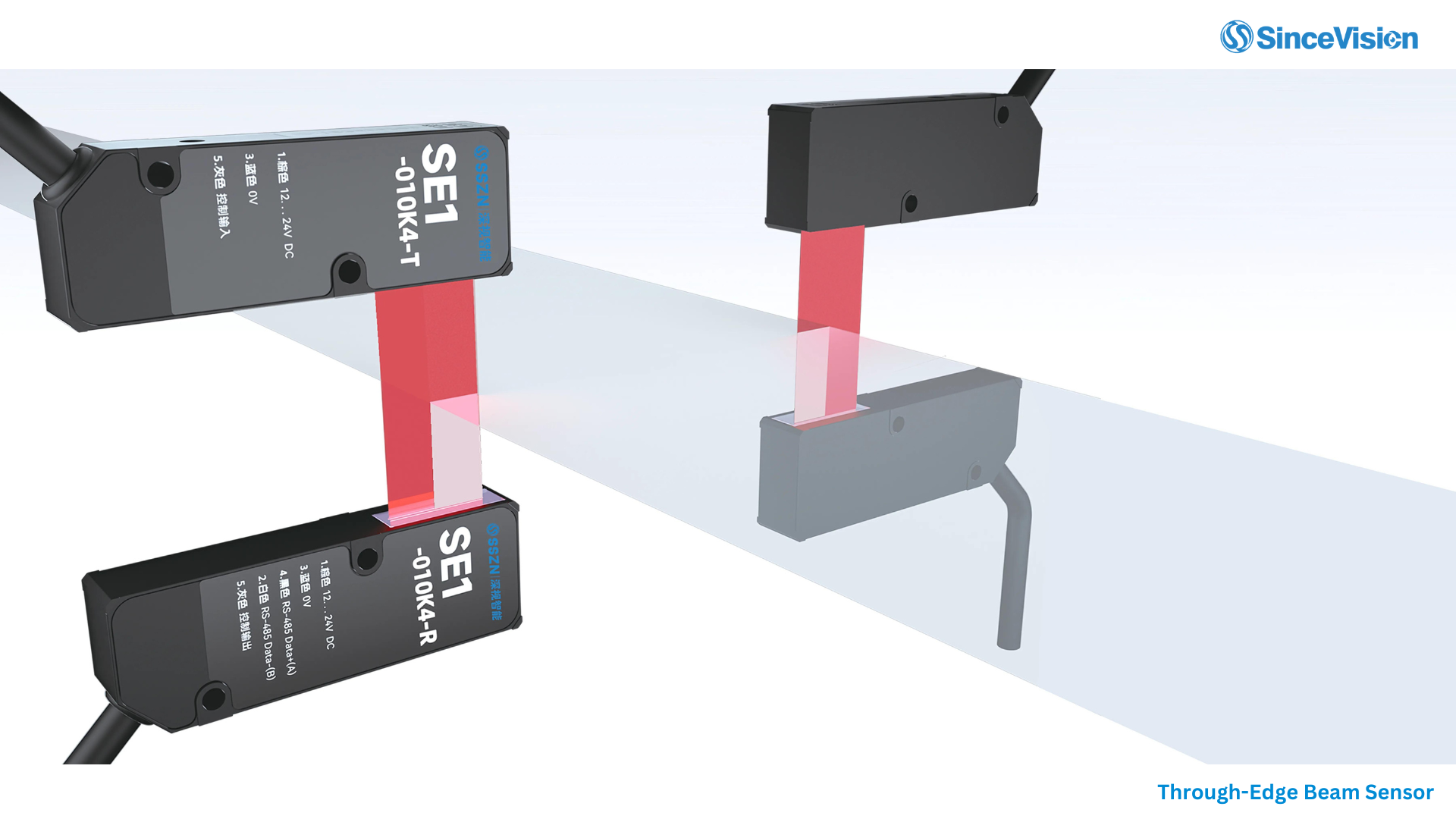In the battery cell production process, ensuring the integrity and alignment of electrode plates is crucial for maintaining quality. As the final detection station in the winding process, real-time detection of edge position and damage is essential to avoid quality issues stemming from misaligned or damaged electrodes. This article discusses the implementation of SinceVision's high-precision edge measurement sensor, the SE1 series, to address these challenges effectively.
Application Scenario
During the winding process of battery cell production, electrodes must be accurately aligned to prevent defects. Misalignment or damage to the edges of electrode plates can lead to significant quality issues, necessitating a deviation sensor that offers high response speed and exceptional detection accuracy.
Solution: SinceVision's SE1 Series Sensors
SinceVision's SE1 series sensors are specifically designed for this application. Installed opposite each other for through-beam measurement at the winding station, these sensors provide:
Sampling Frequency:4 kHz
Response Time:250 µs
Repeatability:5 µm
Utilizing EtherCAT communication, these sensors ensure high-speed data transmission and robust anti-interference capabilities, making them ideal for real-time monitoring of electrode alignment and damage detection.

Benefits of Using SE1 Series Sensors
High Precision:The sensors offer unmatched accuracy in edge position detection, crucial for maintaining the quality of battery cells.
Rapid Response:With a response time of just 250 µs, the sensors can quickly identify deviations, allowing for immediate corrective actions.
Reliable Communication:The EtherCAT bus communication enhances data integrity and reduces the risk of interference, ensuring consistent performance in a manufacturing environment.
Conclusion
By implementing SinceVision's SE1 series sensors in the winding process, manufacturers can significantly enhance their quality control measures. The ability to detect electrode rolled deviations and damage in real-time not only improves product quality but also reduces waste and production costs. As the demand for high-performance battery cells continues to grow, leveraging advanced sensor technology will be critical for maintaining competitive advantage in the industry.
For more information on SinceVision's sensor solutions and how they can optimize your production processes, please reach out to us.
-
Industry News2025-12-15Solving Measurement Challenges in Opaque and Semi-Transparent Glue Inspection with SinceVision 3D Laser Profiler
-
Industry News2025-12-05Machine Vision Sensor Solutions in Automotive Manufacturing | SinceVision Application Cases
-
Corporate News2025-12-02SinceVision to Exhibit Advanced Imaging and Sensing Technologies at SPIE VISION TECH 2026
-
Corporate News2025-11-17SinceVision Launches New Back-Illuminated Cooled sCMOS Camera Series for Ultra-Low-Light Scientific Imaging







